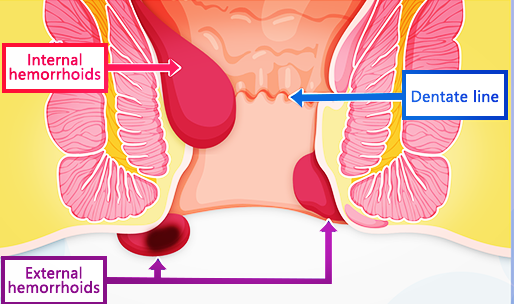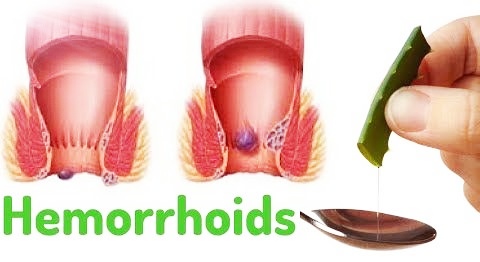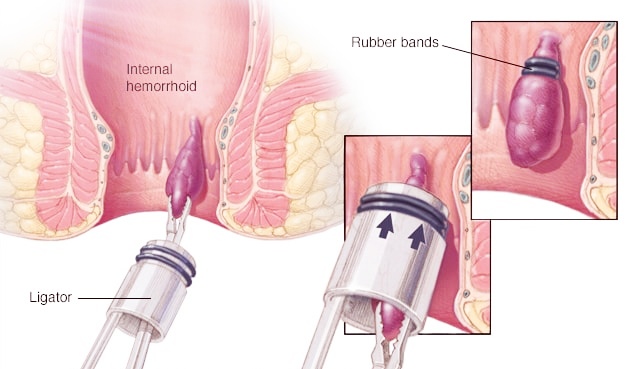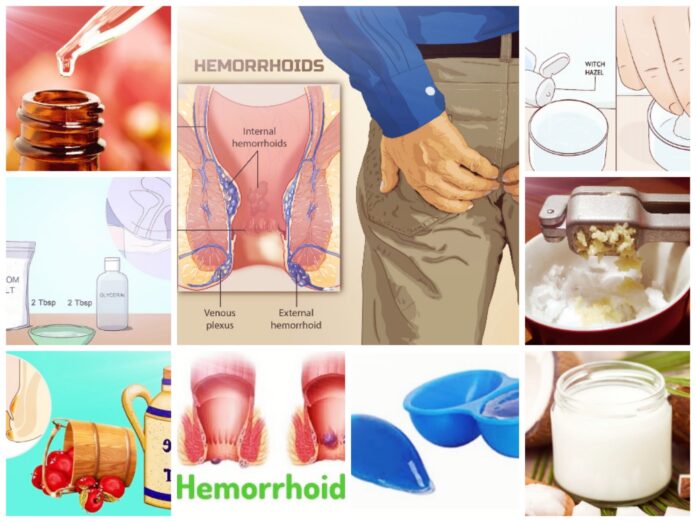
Hemorrhoids Symptoms and Causes.10 best Natural remedies for Hemorrhoids
Hemorrhoids, also known as piles, are a common condition that affects millions of people worldwide. Hemorrhoids are swollen and inflamed veins in the lower rectum and anus. They can be internal, external, or both, and can cause a range of symptoms, including pain, itching, bleeding, and discomfort.
Hemorrhoids are classified into two main types: internal and external. Internal hemorrhoids are located inside the rectum, while external hemorrhoids are located outside the anus.this dieses can also be classified by their location: prolapsed hemorrhoids are internal hemorrhoids that have descended and protruded through the anus, while thrombosed hemorrhoids occur when a blood clot forms inside the external hemorrhoid.
The symptoms of hemorrhoids can vary depending on the type and severity of the condition. Internal hemorrhoids may not cause any symptoms at all, or they may cause bleeding during bowel movements or discomfort. External hemorrhoids, on the other hand, may cause itching, pain, swelling, and bleeding. Thrombosed this dieses can be particularly painful and may require medical treatment.
The causes of hemorrhoids are not entirely clear, but several factors can contribute to the development of the condition.
These include:
Straining during bowel movements:Straining during bowel movements is a common cause of this. This can happen when constipated or when trying to pass hard stools.
Chronic diarrhea: Chronic diarrhea can irritate the anus and rectum and cause this dieses to develop.
Pregnancy: Hemorrhoids are common during pregnancy due to increased pressure on the veins in the pelvic area.
Obesity: Being overweight or obese can put extra pressure on the veins in the anus and rectum, increasing the risk of hemorrhoids.
Sitting for long periods: Sitting for extended periods, particularly on hard surfaces, can put pressure on the veins in the pelvic area and increase the risk of hemorrhoids.
Aging: As we age, the tissues in the anus and rectum become weaker and more susceptible to this dieses.
Genetics: Some people may be more prone to developing hemorrhoids due to a genetic predisposition.
Other factors: Other factors that can contribute to the development of this dieses include anal sex, lifting heavy objects, and certain medical conditions that increase the risk of constipation or diarrhea.
Treatment for hemorrhoids typically involves managing the symptoms and reducing the swelling and inflammation of the veins. This may include over-the-counter creams or ointments, sitz baths, and dietary and lifestyle changes to prevent constipation and promote regular bowel movements.
In more severe cases, medical treatment may be necessary. This may include procedures such as rubber band ligation, sclerotherapy, or surgical removal of the hemorrhoids.
Hemorrhoids, also known as piles are common conditions that can be painful and uncomfortable. While medical treatments can be effective in managing this dieses, several natural remedies can help reduce the symptoms and promote healing. Here are 10 natural remedies for hemorrhoids and how to use them:
Aloe Vera:

Aloe vera has anti-inflammatory properties that can help reduce the swelling and inflammation of hemorrhoids. Apply a small amount of aloe vera gel to the affected area and leave it on for 10-15 minutes before rinsing off with warm water.
Witch Hazel: Witch hazel is a natural astringent that can help reduce the swelling and irritation of this dieses. Soak a cotton ball or pad in witch hazel and apply it to the affected area for 10-15 minutes.
Apple Cider Vinegar: Apple cider vinegar has anti-inflammatory properties and can help reduce the swelling and irritation of Hemorrhoids. Mix equal parts apple cider vinegar and water and soak a cotton ball or pad in the mixture. Apply it to the affected area for 10-15 minutes.
Epsom Salt: Epsom salt has anti-inflammatory properties and can help reduce the swelling and discomfort of hemorrhoids. Add 1-2 cups of Epsom salt to a warm bath or 2 tablespoons of Epsom salt and 2 tablespoons of glycerine mix it and soak for 20-30 minutes.
Coconut Oil: Coconut oil has anti-inflammatory and antibacterial properties that can help reduce the swelling and irritation of hemorrhoids. Apply a small amount of coconut oil to the affected area and leave it on for several hours.
Tea Tree Oil: Tea tree oil has anti-inflammatory and antimicrobial properties that can help reduce the swelling and irritation of hemorrhoids. Mix a few drops of tea tree oil with carrier oil, such as coconut oil, and apply it to the affected area.
Garlic: Garlic has anti-inflammatory and antibacterial properties that can help reduce the swelling and irritation of hemorrhoids. Crush a few cloves of garlic and mix it with coconut oil. Apply the mixture to the affected area and leave it on for several hours.
Ice Packs: Applying ice packs to the affected area can help reduce the swelling and discomfort of this dieses. Wrap a few ice cubes in a towel and apply it to the affected area for 10-15 minutes.
High-Fiber Diet: A high-fiber diet can help promote regular bowel movements and reduce the risk of constipation, which can contribute to the development of hemorrhoids. Eat foods such as fruits, vegetables, whole grains, and legumes.
Hydration: Drinking plenty of water can help soften stools and reduce the risk of constipation, which can contribute to the development of this dieses. Aim to drink at least 8-10 glasses of water per day.
While these natural remedies can be effective in managing the symptoms of hemorrhoids, it’s important to remember that they may not work for everyone. If you experience severe or persistent symptoms, it’s important to seek medical treatment. Additionally, if you have a medical condition or are taking medications, it’s important to speak with your doctor before using any natural remedies to ensure they are safe for you to use.
In conclusion, this dieses are a common condition that affects millions of people worldwide. They can cause a range of symptoms, including pain, itching, bleeding, and discomfort, and can be classified as internal, external, prolapsed, or thrombosed. The causes of this are not entirely clear, but several factors can contribute to their development, including straining during bowel movements, chronic diarrhea, pregnancy, obesity, sitting for long periods, aging, genetics, and other factors. Treatment for this dieses typically involves managing the symptoms and reducing the swelling and inflammation of the veins, and may include over-the-counter creams or ointments, sitz baths, dietary and lifestyle changes, or medical procedures.

Do hemorrhoids go away on its own?
In some cases,this dieses can go away on their own without treatment. However, the length of time it takes for this dieses to go away can vary greatly depending on the severity of the condition and the individual’s overall health.
For example, mild cases of this dieses may go away on their own within a few days or weeks with self-care measures such as increasing fiber intake, staying hydrated, and taking warm baths. However, more severe cases of this dieses may require medical treatment such as medication, minimally invasive procedures, or surgery.
It’s important to note that while this dieses may go away on their own, the underlying causes of this diesessuch as constipation and straining during bowel movements may need to be addressed to prevent future occurrences. If you are experiencing symptoms of this dieses, it’s always best to consult with a healthcare professional for proper diagnosis and treatment.
What happens if you let hemorrhoids go untreated?
If left untreated, hemorrhoids can lead to several complications, including:
Thrombosed hemorrhoids: this dieses can develop blood clots and become thrombosed, which can be very painful and require medical treatment.
Prolapse: Hemorrhoids can become so enlarged that they protrude from the anus, which can be uncomfortable and may require medical intervention to push them back in.
Strangulated hemorrhoids: this dieses that prolapse and cannot be pushed back in may become strangulated, which means the blood supply to the hemorrhoid is cut off. This is a medical emergency and requires immediate treatment.
Anemia: Chronic bleeding from hemorrhoids can lead to anemia, which is a condition where the body doesn’t have enough red blood cells to carry oxygen to tissues and organs.
Infection: this dieses that are not properly cleaned or treated can become infected, which can lead to pain, swelling, and fever.
If you are experiencing symptoms of this dieses, it’s important to seek medical attention to prevent these complications from occurring. Treatment options may include lifestyle changes, over-the-counter medications, or medical procedures depending on the severity of thethis dieses.
Should I push my hemorrhoid back in?
No, you should not attempt to push your hemorrhoid back in as this can lead to further complications.
Hemorrhoids can sometimes prolapse, meaning they protrude from the anus, and may need to be pushed back in. However, this should only be done under the guidance of a healthcare professional.
Attempting to push a hemorrhoid back in on your own can lead to further pain, bleeding, and even infection. Additionally, if the hemorrhoid is thrombosed or strangulated, attempting to push it back in can cause serious harm.
If you are experiencing symptoms of hemorrhoids, it’s important to seek medical attention for proper diagnosis and treatment. Your healthcare provider may recommend a combination of lifestyle changes, over-the-counter medications, or medical procedures depending on the severity of your hemorrhoids.
Can you feel a hemorrhoid with your finger?
Yes, it is possible to feel a hemorrhoid with your finger, especially if it has prolapsed or is located near the anus.
this dieses are swollen veins in the anus or lower rectum that can cause discomfort, itching, and bleeding. Depending on their location and severity, hemorrhoids can sometimes be felt as a soft lump or bump near the anus.
However, it’s important to note that not all hemorrhoids can be felt with your finger, and other conditions such as anal fissures or abscesses can also cause lumps or bumps in the anal area.
If you are experiencing symptoms such as pain, bleeding, or discomfort in the anal area, it’s important to seek medical attention for proper diagnosis and treatment. Your healthcare provider can help determine the underlying cause of your symptoms and recommend appropriate treatment options.

















